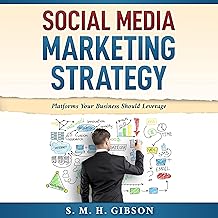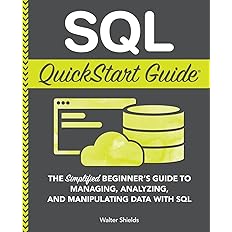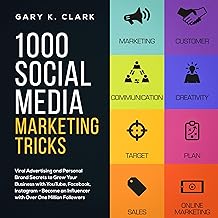Digital marketing has become increasingly complex, with numerous channels and strategies to juggle. Fortunately, there’s a wide array of tools available to help marketers streamline their efforts and boost results.
In this comprehensive guide, we’ll explore the most effective tools for managing your digital marketing campaigns, helping you make informed decisions about which solutions to incorporate into your workflow.
Other articles similar to this one can be found at: https://globalaffmktg.com/
The Digital Marketing Toolbox: An Overview
The digital marketing landscape has transformed dramatically since the early days of email marketing and basic web analytics. Today’s tools leverage advanced technologies like artificial intelligence, machine learning, and big data to provide marketers with unprecedented insights and automation capabilities.
Shop more details to accelerate your marketing techniques here: https://amzn.to/4gs0CJK

Note: As an Amazon Associate, I may earn a commission from qualifying purchases.
The Evolution of Marketing Technology
The progression from simple email platforms to today’s sophisticated marketing suites reflects the rapid advancement of digital marketing technologies. In the late 1990s and early 2000s, marketers were just beginning to tap into the potential of online channels.
Now, we’re dealing with complex marketing technology stacks capable of tracking, analyzing, and optimizing every aspect of the customer journey.
Key Categories of Digital Marketing Tools
- Marketing Automation Platforms
- Social Media Management Tools
- Content Management Systems (CMS)
- Search Engine Optimization (SEO) Software
- Analytics and Reporting Tools
- Customer Relationship Management (CRM) Systems
- Email Marketing Platforms
- Conversion Rate Optimization (CRO) Tools
- Influencer Marketing Platforms
- Project Management and Collaboration Tools
Choosing the Right Tools: A Strategic Approach
Selecting the best tools for your digital marketing efforts needs careful consideration of your business goals, existing systems, and growth potential. Here’s how to approach the selection process strategically:
Assessing Your Needs
Before exploring the vast array of marketing tools available, take time to evaluate your current marketing processes. Identify pain points and bottlenecks in your workflow.
This assessment will help you prioritize which tools to invest in first and confirm you’re addressing your most pressing needs.
You’re going to need AI Tools to assist you in managing your digital marketing efforts. Try this resource: https://galaxy.ai/?ref=gary
Integration Capabilities
Data silos pose a significant challenge in digital marketing. Look for tools that offer robust integration capabilities.
The ability to seamlessly share data between your CRM, marketing automation platform, and analytics tools provides a holistic view of your marketing efforts and customer interactions.
Scalability and Future-Proofing
As your business grows, your marketing needs will evolve. Choose tools that offer scalability in terms of features, data handling capacity, and user accounts.
Consider the vendor’s track record of innovation and updates.
In the fast-paced world of digital marketing, tools that don’t keep up with the latest trends can quickly become obsolete.
Essential Tools for Modern Digital Marketing
1. HubSpot
HubSpot has established itself as a leader in the marketing automation space, offering a comprehensive suite of tools for marketing, sales, and customer service. It’s strength comes from providing a unified platform for all your marketing needs, from content creation to lead nurturing and analytics.
Key Features:
- All-in-one marketing, sales, and service platform
- Robust CRM functionality
- Content management system
- Email marketing and automation
- Social media management
- SEO tools
- Analytics and reporting
Pro Tip: Take advantage of HubSpot’s free CRM to get a taste of the platform before committing to the full suite.
2. Semrush
Semrush excels in SEO and content marketing. It offers keyword research, competitor analysis, site audit tools, and much more.
Semrush provides actionable insights, helping you not just gather data, but understand how to use it to improve your marketing strategy.
Key Features:
- Comprehensive keyword research
- Competitor analysis
- Site audit tools
- Content marketing platform
- PPC research and planning
- Social media management
- Local SEO tools
3. Hootsuite
Managing many social media accounts can be time-consuming. Hootsuite simplifies this process by allowing you to schedule posts, watch mentions, and analyze performance across various social platforms from a single dashboard.
It’s team collaboration features make it an excellent choice for larger organizations.
Key Features:
- Multi-platform social media management
- Content scheduling and publishing
- Social listening and monitoring
- Analytics and reporting
- Team collaboration tools
- Ad campaign management
4. Google Analytics
Google Analytics provides in-depth insights into your website traffic, user behavior, and conversion rates. While it can be overwhelming at first, mastering Google Analytics is crucial for data-driven marketing decisions.
Key Features:
- Real-time website traffic monitoring
- User behavior analysis
- Conversion tracking
- Custom report creation
- Integration with Google Ads
- E-commerce tracking
Key Insight: Use Google Analytics in conjunction with Google Tag Manager for more flexible and powerful tracking capabilities.
5. Mailchimp
Mailchimp has evolved from a simple email marketing tool to a full-fledged marketing platform. It’s intuitive interface, powerful automation features, and robust analytics make it an excellent choice for businesses of all sizes.
The ability to create landing pages and social media ads within the platform adds to it’s versatility.
Key Features:
- Email campaign creation and automation
- Landing page builder
- Customer journey mapping
- Audience segmentation
- A/B testing
- Integration with e-commerce platforms
- Social media ad creation
- Review valuable information about digital marketing will help you avoid problems: https://amzn.to/3ZW33xh

- Note: As an Amazon Associate, I may earn a commission from qualifying purchases.
Here’s a great data research firm: https://www.affiliateprogramdb.com/research-service/?ref=vrvzptls
Put in Coupon Code dataxyz for a 10% discount
Overcoming Common Challenges in Tool Implementation
Implementing new marketing tools can be a daunting task. Here are some common challenges you might face and strategies to overcome them:
Data Migration
Moving data from old systems to new ones can be tricky. Plan your data migration carefully, and consider hiring a specialist if you’re dealing with large amounts of complex data.
Start with a thorough audit of your existing data, clean it up, and map out how it will fit into the new system.
Test the migration process with a small subset of data before committing to a full transfer.
User Adoption
New tools often face resistance from team members comfortable with existing processes. Invest in proper training and highlight the benefits of the new tools to encourage adoption.
Consider appointing “tool champions” within your team who can help others learn and see the value in the new systems.
Create clear documentation and provide ongoing support to confirm smooth adoption.
Integration Issues
Sometimes, tools don’t work well together. Before committing to a new tool, thoroughly test it’s integration capabilities with your existing systems.
Look for tools with robust APIs and pre-built integrations with popular platforms.
If necessary, consider custom integrations or middleware solutions to bridge gaps between systems.
Cost Management
Marketing tools can be expensive, especially as you scale. Regularly review your toolstack to confirm you’re getting value from each tool and consider consolidating where possible.
Look for tools that offer flexible pricing tiers or modular features, allowing you to pay only for what you need. Don’t be afraid to negotiate with vendors, especially for enterprise-level solutions.
Adapting Your Toolstack to Different Marketing Scenarios
Different marketing scenarios call for different approaches. Here’s how to adapt your toolstack:
B2B vs. B2C Marketing
B2B marketing often needs more sophisticated lead nurturing tools, while B2C might focus more on social media and e-commerce integration. For B2B, prioritize tools with strong CRM integration, account-based marketing features, and in-depth analytics for tracking long sales cycles.
B2C marketers should look for tools that excel in social media management, user-generated content curation, and e-commerce platform integration.
If your small business needs to increase your company’s public relations exposure.
Here’s an agency that will certainly assist you in that step: http://www.ereleases.com/hello.html
Startup vs. Enterprise
Startups typically prioritize cost-effective, all-in-one solutions, while enterprises often need more specialized, scalable tools. Startups should look for tools that offer a wide range of features at an affordable price point, with the ability to scale as the business grows.
Enterprises may need to invest in more robust, specialized tools that can handle large volumes of data and complex workflows across many departments.
Local vs. Global Marketing
Local businesses might focus on tools with strong local SEO features, while global companies need tools that can handle multi-language and multi-currency capabilities. For local marketing, look for tools that combine with Google My Business, offer location-based targeting, and provide insights into local search trends.
Global marketers should prioritize tools with strong localization features, international SEO capabilities, and the ability to manage campaigns across many regions and languages.
Articles similar to this one can be found at: https://globalaffmktg.com/
From Basics to Mastery: Building Your Digital Marketing Expertise
Mastering digital marketing tools is an ongoing process. Start with the basics of each tool, focusing on the features that align most closely with your immediate needs. As you become more comfortable, explore advanced features and integrations.
Remember, the tools are just that – tools. They’re most effective when used by marketers with a solid understanding of marketing principles and strategy.
Continuously educate yourself on marketing trends and best practices to make the most of your toolstack.
Here is one of those additional educational tools: https://amzn.to/3Pa4eEn

Note: As an Amazon Associate, I may earn a commission from qualifying purchases.
If you want to join a platform to jumpstart your affiliate marketing pursuits, start here: https://affiliates.maxbounty.com/register?referrer=747225
Practical Exercises to Enhance Your Tool Proficiency
- Audit Your Current Toolstack: List all the tools you’re currently using and evaluate their effectiveness.
Are there any redundancies?
Gaps? This exercise helps you identify areas for improvement and potential cost savings.
- Create a Dream Toolstack: Research and create a list of tools you’d ideally like to use.
Compare this with your current stack to identify areas for improvement.
This aspirational exercise can help guide your long-term tool acquisition strategy.
- Tool Integration Challenge: Choose two tools in your stack and find a new way to combine them for improved efficiency.
For example, you might create a custom integration between your CRM and your social media management tool to better track customer interactions across channels.
- Data Storytelling: Use your analytics tools to create a compelling story about your marketing performance.
Present this to your team or stakeholders.
This exercise helps you practice extracting meaningful insights from data and communicating them effectively.
- Automation Workflow: Design and apply an automated marketing workflow using your chosen marketing automation platform.
Start with a simple workflow, such as a welcome email series for new subscribers, and gradually build more complex, multi-channel automation sequences.
Advanced Strategies for Maximizing Your Marketing Toolstack
As you become more proficient with your chosen tools, consider these advanced strategies to take your digital marketing efforts to the next level:
1. Cross-Channel Attribution Modeling
Implement advanced attribution modeling to understand how different marketing channels contribute to conversions. Tools like Google Analytics 360 or dedicated attribution platforms can help you move beyond last-click attribution to more sophisticated models that provide a clearer picture of your marketing ROI.
2. Predictive Analytics and AI-Driven Insights
Leverage tools that incorporate predictive analytics and AI to forecast trends, identify potential churn risks, and personalize marketing efforts at scale. Platforms like Salesforce Einstein or Adobe Sensei offer powerful AI capabilities that can significantly enhance your marketing decision-making.
3. Customer Data Platforms (CDPs)
Consider implementing a CDP to unify customer data from various sources and create a single, comprehensive view of each customer. This can dramatically improve personalization efforts and help you deliver more targeted, relevant marketing messages across all channels.
4. Voice Search Optimization
As voice search becomes increasingly prevalent, adapt your SEO tools and strategies to optimize for voice queries. Look for SEO platforms that offer voice search-specific features and insights to stay ahead of this growing trend.
5. Augmented Reality (AR) Marketing
Explore tools that allow you to create AR experiences for your customers. Platforms like Snapchat’s Lens Studio or Facebook’s Spark AR can help you develop engaging AR content that sets your brand apart and provides unique interactive experiences for your audience.
Measuring the Impact of Your Marketing Tools
To confirm you’re getting the most value from your marketing toolstack, it’s crucial to regularly assess their impact on your overall marketing performance. Here are some key metrics to consider:
- Return on Investment (ROI): Calculate the ROI for each tool by comparing it’s cost to the revenue or cost savings it generates.
- Time Savings: Measure how much time your team saves by using automation and efficiency-boosting tools.
- Lead Quality: Assess whether your tools are helping you generate higher-quality leads that are more likely to convert.
- Customer Engagement: Track metrics like open rates, click-through rates, and social media engagement to gauge the effectiveness of your communication tools.
- Conversion Rates: Monitor how your conversion rates change as you implement and optimize new tools.
Regularly reviewing these metrics will help you make informed decisions about which tools to keep, upgrade, or replace in your marketing stack.
The Future of Digital Marketing Tools
As technology continues to evolve, so too will the landscape of digital marketing tools. Here are some trends to watch for in the coming years:
- Increased AI Integration: Expect to see more tools leveraging AI for tasks like content creation, predictive analytics, and personalized customer experiences.
- Privacy-Focused Solutions: With growing concerns about data privacy, tools that help marketers navigate new regulations and respect user privacy will become increasingly important.
- Blockchain for Transparency: Blockchain technology may be used to provide greater transparency in advertising, helping to combat ad fraud and improve trust between brands and consumers.
- Internet of Things (IoT) Marketing: As more devices become connected, expect to see tools that help marketers leverage IoT data for more contextual and personalized marketing.
- Virtual and Augmented Reality: More sophisticated tools for creating and measuring the impact of VR and AR marketing experiences will likely emerge.
Staying informed about these trends will help you future-proof your marketing toolstack and maintain a competitive edge in the ever-evolving digital landscape.
Key Takeaways
- Assess your specific needs before investing in new tools
- Prioritize integration capabilities and scalability when selecting tools
- Balance all-in-one solutions with specialized tools for optimal performance
- Invest time in learning and mastering your chosen tools
- Regularly review and improve your toolstack to confirm it aligns with your evolving marketing goals
- Stay informed about emerging trends and technologies in the marketing tool landscape
- Measure the impact of your tools on key performance metrics to justify investments and guide future decisions
Frequently Asked Questions
What is the best all-in-one digital marketing tool?
HubSpot is widely considered one of the best all-in-one digital marketing tools because of it’s comprehensive feature set covering marketing, sales, and customer service. However, the best tool for your business depends on your specific needs, budget, and existing tech stack.
How much should I budget for digital marketing tools?
The budget for digital marketing tools varies widely depending on the size of your business and your marketing needs. Small businesses might spend anywhere from $100 to $500 per month, while larger enterprises could invest thousands or even tens of thousands monthly. It’s important to start with essential tools and gradually expand as you see ROI.
Can free digital marketing tools be effective?
Yes, many free digital marketing tools can be highly effective, especially for small businesses or those just starting out. Tools like Google Analytics, Canva for design, and HubSpot’s free CRM offer powerful features at no cost.
However, as your needs grow, you may find paid tools offer more advanced features and better scalability.
How often should I review my marketing toolstack?
It’s a good practice to review your marketing toolstack at least annually. However, you should also reassess whenever there are significant changes in your business strategy, budget, or team structure.
Regular reviews confirm your tools remain aligned with your goals and are providing value.
What’s the difference between a CRM and a marketing automation tool?
While there’s some overlap, a CRM (Customer Relationship Management) system primarily focuses on managing customer interactions and sales processes. Marketing automation tools, on the other hand, automate marketing tasks and workflows across many channels.
Many modern platforms, like HubSpot, offer both CRM and marketing automation features in one package.
How can I confirm data privacy compliance with my marketing tools?
To confirm data privacy compliance:
- Choose tools that offer robust security features and follow relevant regulations (e.g., GDPR, CCPA).
- Regularly audit your data collection and storage practices.
- Implement proper consent management for data collection.
- Train your team on data privacy best practices.
- Keep your tools and integrations up to date with the latest security patches.
What skills do I need to effectively use digital marketing tools?
While specific skills vary depending on the tools you use, some generally valuable skills include:
- Data analysis and interpretation
- Basic HTML and CSS for email and web content creation
- Understanding of SEO principles
- Familiarity with social media platforms
- Project management
- Content creation and copywriting
- Basic graphic design skills
Continuous learning is vital in the ever-evolving field of digital marketing: https://amzn.to/3VUZeqU

Note: As an Amazon Associate, I may earn a commission from qualifying purchases.
If you want to join a platform to jumpstart your affiliate marketing pursuits, start here: https://affiliates.maxbounty.com/register?referrer=747225
This post contains links. If you click on these links and make a purchase, I may earn a commission at no additional cost to you. Rest assured, I only recommend products or services I believe will add value to my readers.
- Please be sure to SAVE this website in your “Favorites” file.
- Articles similar to this one can be found at: https://globalaffmktg.com/
